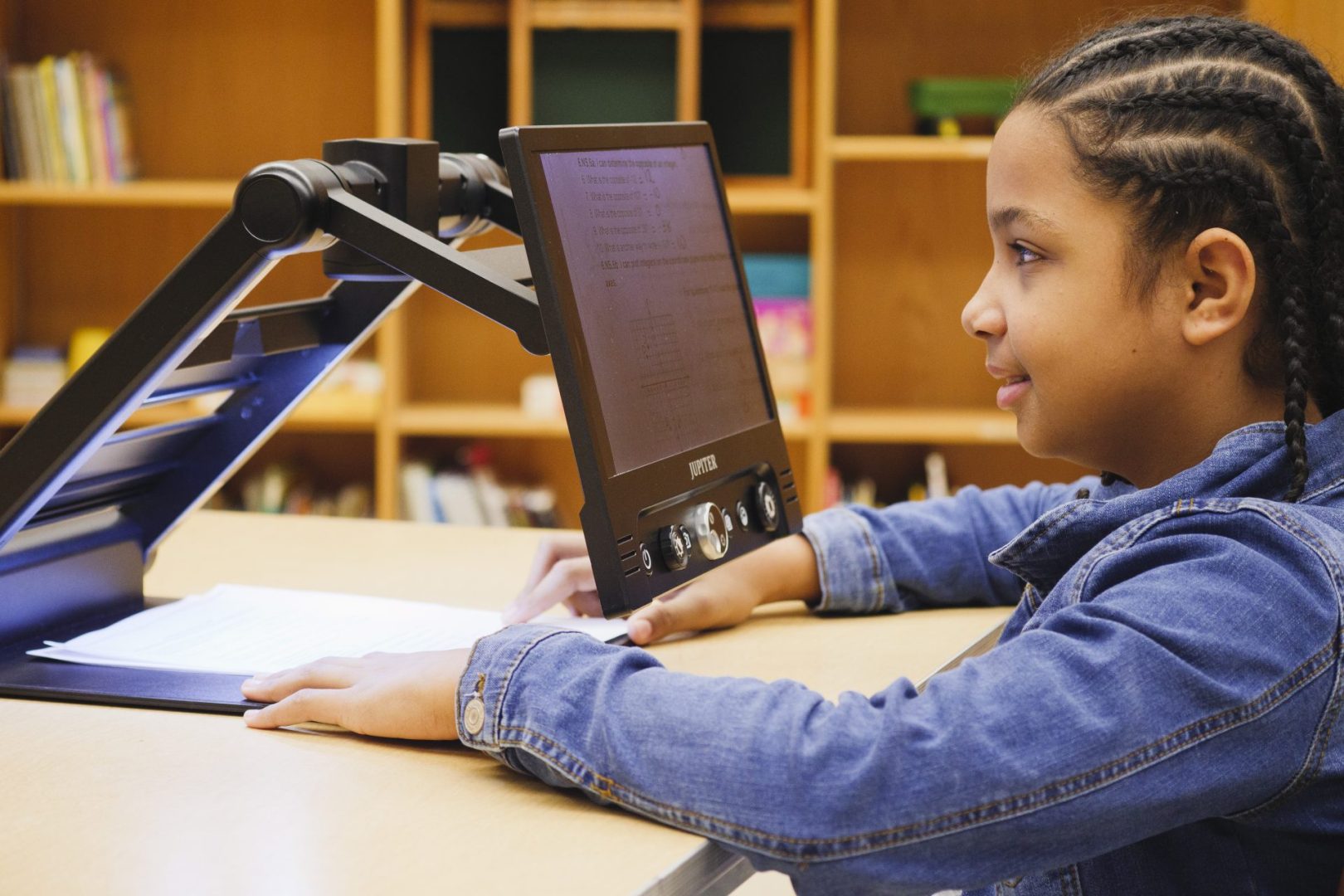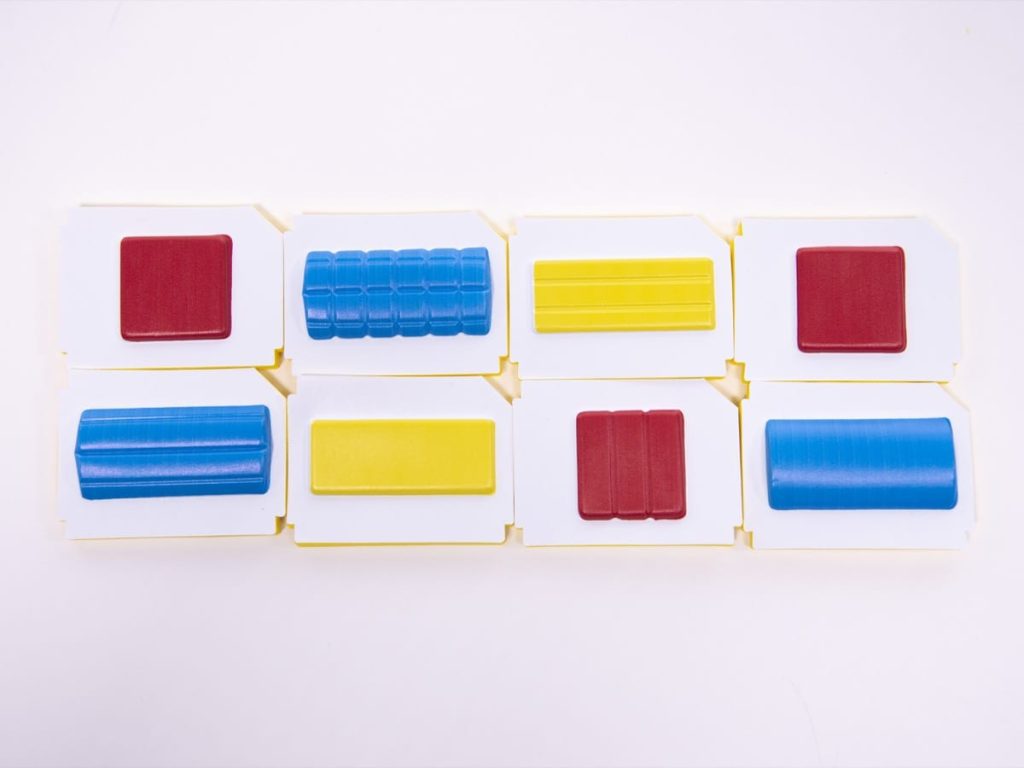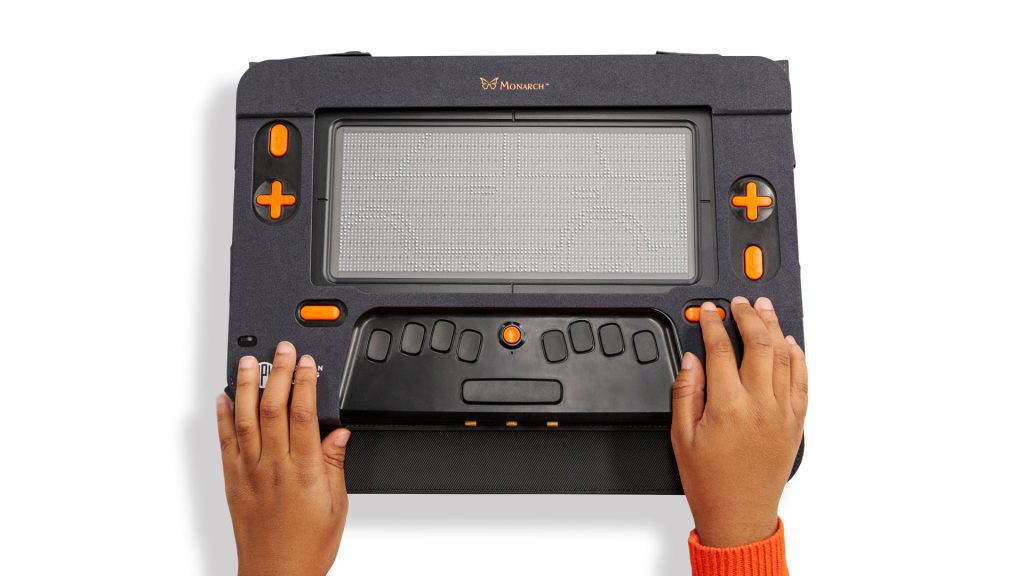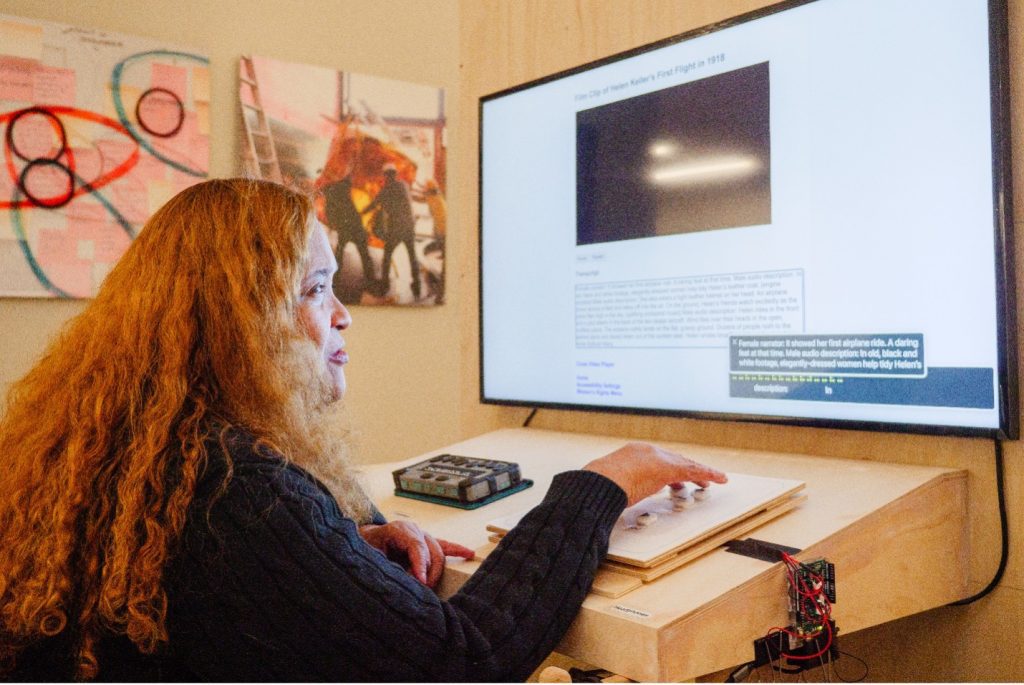PDSES Program Provides Texas Students with Greater Access to Assistive Technology

In the classroom, students who are blind or have low vision that receive an individualized education program (IEP), are given the opportunity to use assistive technology devices for independent learning and work completion. The ability for students to take their technology with them outside of the classroom is decided on a state-by-state basis. However, Texas has developed an option for parents to give their students greater independence with assistive technology at all times.
“By having these specialized tools available for home use, students can reinforce their learning, build confidence, and develop independence in a setting that is both comfortable and familiar. This supports deeper engagement and academic growth, aligning with the TEA’s goal of ensuring all students have access to meaningful, high-quality learning experiences across all settings,” said Stephanie Walker, an APH Outreach Regional Specialist for the Texas Region.
The Texas Education Agency offers students the opportunity to apply for the Parent-Directed Special Education Services (PDSES) program. The PDSES program, previously known as the Supplemental Special Education Services (SSES) program, is a one-time grant of 1,500 dollars that can be used to purchase resources like those provided at The American Printing House, such as textbooks, curriculum, or assistive technology devices. The funds can also be used to pay for services such as additional speech therapy, tutoring, and more from approved vendors. In order to be eligible for this program, students must be enrolled in the Texas public school system, receive education services through an IEP, and must not be a previous recipient of a PDSES or SSES grant.
In the public school system, it is not always guaranteed that students will have the opportunity to use assistive technology provided by their IEP outside of the classroom. For some students, while they receive assistance in school, once they return home they no longer have access to the technology necessary for independence at home or in the workplace. With the PDSES program, students receive funds directly set up to aide in the purchase of technology that can follow them anywhere. This not only helps with schoolwork but creates a greater ability for these students to become independent workers in all their endeavors. The PDSES program recognizes that for students, access to any of these materials is not only helpful, but essential to continual learning.
This unique opportunity has the potential to enrich student lives both at home and in school. “For families of students with visual impairments, finding high-quality, accessible materials outside of school channels can be challenging, especially in a marketplace where few vendors offer products specifically designed for this population. APH’s inclusion in the PDSES program helps close that gap,” said Stephanie.
As an institution that specializes in the production of assistive technology and services for students who are blind or have low vision, The American Printing House is proud to be a direct-pay vendor with the PDSES program. This means, for any parents who have applied and been approved for this program, any American Printing House products are eligible for purchase through the PDSES funding.
“Families now have the ability to choose from a wide range of APH products, most of which are not commercially available elsewhere. These products are built to support tactile learning, braille literacy, and access to the general curriculum. This ensures that families of students with visual impairments have the same ability to support their child’s learning at home as other families do,” said Stephanie.
Share this article.
Related articles

Product Updates for Spring 2025
APH consistently works to not only produce new technology, but to improve what already exists. With technology that is always...

Bringing eBraille to Everyone with Duxbury
Looking to the future of eBraille on the Monarch, it is impossible to consider the implementation of this new file...

Creating Inclusive Museum Experiences: The Role of Media Integration in The Dot Experience
We recently had the opportunity to talk with Billy Boyd and Annie Schauer from Solid Light to learn more about...
